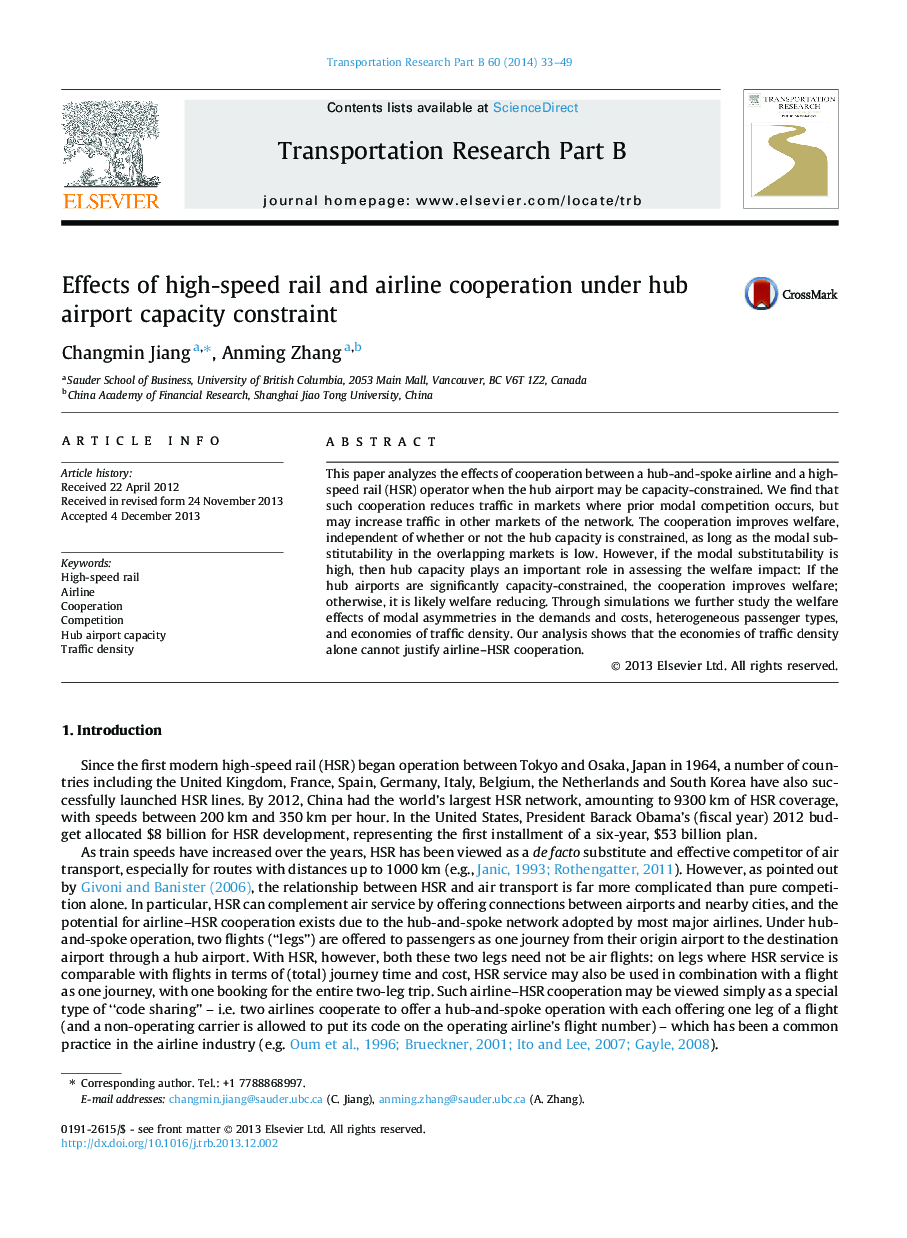| Article ID | Journal | Published Year | Pages | File Type |
|---|---|---|---|---|
| 1132015 | Transportation Research Part B: Methodological | 2014 | 17 Pages |
•Airline-HSR cooperation reduces traffic in markets where prior modal competition takes place.•Airline-HSR cooperation improves welfare if the substitutability in overlapping markets is low.•Hub capacity plays an important role in assessing the welfare impact of airline-HSR cooperation.•Economies of traffic density alone cannot justify the airline-HSR cooperation.
This paper analyzes the effects of cooperation between a hub-and-spoke airline and a high-speed rail (HSR) operator when the hub airport may be capacity-constrained. We find that such cooperation reduces traffic in markets where prior modal competition occurs, but may increase traffic in other markets of the network. The cooperation improves welfare, independent of whether or not the hub capacity is constrained, as long as the modal substitutability in the overlapping markets is low. However, if the modal substitutability is high, then hub capacity plays an important role in assessing the welfare impact: If the hub airports are significantly capacity-constrained, the cooperation improves welfare; otherwise, it is likely welfare reducing. Through simulations we further study the welfare effects of modal asymmetries in the demands and costs, heterogeneous passenger types, and economies of traffic density. Our analysis shows that the economies of traffic density alone cannot justify airline–HSR cooperation.
